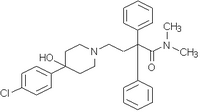For HIVers already experiencing gastrointestinal side effects from their antiretroviral drugs, the prospect of "traveler's tummy" may be enough to put those vacation plans on hold. But according to AIDS experts, you can minimize potential problems via:
PREVENTION: This could mean changing your antiretroviral regimen before you leave to include medications with fewer gastrointestinal side effects, and avoiding foods and drinks that may trigger digestive disturbances, like spicy dishes, greasy foods, dairy products, chocolate, coffee, soft drinks, alcohol, and wine. Raw and undercooked foods also can cause bacterial or parasitic infections, as can tap water in some foreign countries.
BE MINDFUL OF DRUG INTERACTIONS: If you do experience heartburn or upset stomach, your first instinct may be to stock up on antacids or antidiarrheal medications. But HIVers must be cautious: Many of these drugs interact badly with anti-HIV medications, boosting the risk for drug resistance and treatment failure, says Tom Barrett, MD, an HIV specialist at Chicago's Howard Brown Health Center. Alka-Seltzer, Maalox, Tums, and Rolaids can interfere with the stomach's absorption of Agenerase, Crixivan, Rescriptor, and Reyataz, while Axid, Pepcid, Tagamet, and Zantac should be entirely avoided by those taking Crixivan, Rescriptor, and Reyataz. Antidiarrheals like Imodium, Kaopectate, and fiber supplements are generally safe for HIVers, as are prescription anti-nausea medications, says Judith Feinberg, MD, former chair of the American Academy of HIV Medicine.
WHEN ALL ELSE FALLS: Try a "BRAT" diet--bananas, rice, applesauce, and toast, advise some health care providers.
COPYRIGHT 2005 Liberation Publications, Inc.
COPYRIGHT 2005 Gale Group



